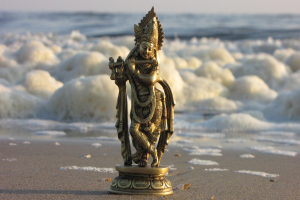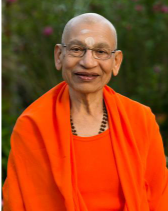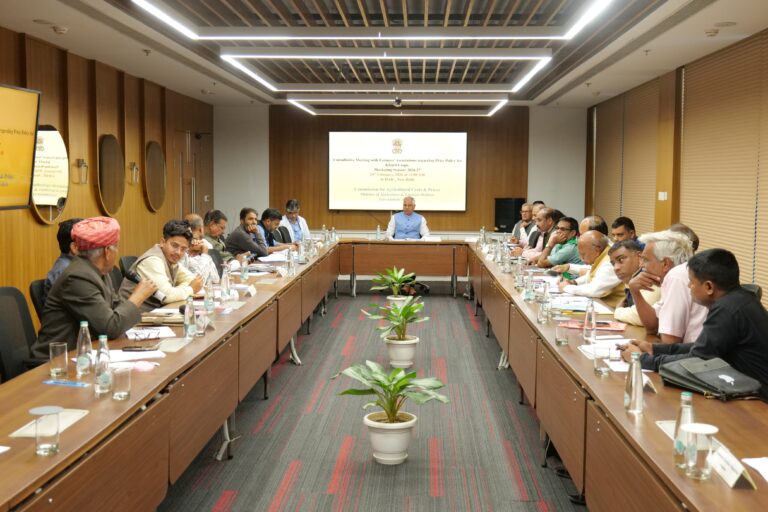
Spirituality: Śāstras teach dharma in the form of duties

By Swami Viditātmānand Saraswati*
In this manner, to maintain order in the universe and so that human beings can achieve welfare, Bhagavān taught dharma, the fundamental truths of life through śāstras and commanded everyone to practice dharma. Śrī Śaṅkarācārya says that to publicize and spread pravṛtti dharma, Bhagavān created prajāpatis such as Marīci etc. who would practice dharma, rituals and dharma in the form of rules and regulations and make others practice them also. That type of power and governance was given to them. Moreover, for those who were ready for nivṛtti dharma because of the maturity of viveka (power of discrimination) and vairāgya (dispassion), Bhagavān created ṛṣis such as Sanaka, Sanandana etc. who would practice dharma in the form of jñāna (knowledge) and vairāgya (dispassion) and teach them to others. With this purpose, meaning, the purpose of human beings practising dharma properly in their life, a system of varṇāśrama (class and stage of life) was established so that every individual can perform actions according to their right, aptitude and preference and achieve their own welfare while serving the society.
Also read:
- Spiritual Discourses: Why do you take birth?
- Spiritual Discourses: The reach of logic is very limited
- Spiritual Discourses: O Arjun, my birth is not realistic like yours!
- Spiritual Discourses: Whoever knows ātmā as ahaṁ, frees from kāma in every way
- Spiritual Discourses: Demand for others is indeed a cause for conflicts
To comply with dharma, one has to control the natural impulses and the temptations arising in the mind. Śāstras teach dharma in the form of duties that one can practice according to the position and responsibility. This responsibility was discussed in the second and the third chapter of Gītā. To comply with the responsibilities, individual conveniences and comforts, in short, rāga-dveṣa need to be renounced. The practice of dharma asks for self-control, and internal strength and expects readiness for renunciation. Penance is already a part of dharma and therefore, its practice seems difficult. Prosperity comes when the people of the society collectively practice dharma. It was said in the third chapter: yajñadbhavati parjanyaḥ. Because of yajña and dharma wealth comes. However, when happiness, comfort and wealth come, temptations arise and love for convenience and enjoyment increases. Self-control reduces. Desires, anger, greed etc. demon tendencies become dominant and dharma is sacrificed. In this manner, over time, dharma becomes weary, declines and adharma comes into power. It is said: dharmo rakṣati rakṣitaḥ. If dharma is protected, it will protect us. Because of the predominance of demon tendencies, conformity to dharma is compromised and therefore, dharma, values, and ethics are forsaken. In this manner, dharma is not protected and then that dharma cannot even protect society. The order and harmony of society continue to be disrupted and conflicts continue to increase. The atheist people who do not have faith in dharma and śāstras become more dominant. In the 16th chapter, Bhagavān describes the attitude and activity of such people: They think of the world as untruthful, without an ethical basis, Godless and lacking interdependence and driven by passion only. They say, “what could be the goal of life besides desires?” Based on this outlook, those enemies of the world whose minds are destroyed, who have dull intelligence, and who do fierce karma, prevail to perish the world. (Bhagvad Gītā, Ch 16, 8-9)
Those people with demon tendencies do not have faith in dharma or Īśvara. They strongly believe that there is no truth in the world, the world is full of untruths, there is no such support as dharma for the world and there is no existence of Īśvara. There is no Īśvara to create this world, that is only created because of the cohesion of male and female only, which means, aphrodisia is the only reason for the creation of this world, not dharma or any such thing. By taking the support of such a totally distorted view, such Godless, those corrupted by the means of the afterlife and with dull intelligence do not accept anything other than what they can see with their eyes. By nature, they do extremely cruel karma and are violent and are enemies of this saṁsāra and as though they are born to destroy the saṁsāra.
In purāṇas, there is a description of Hiraṇyakaśipu, Rāvaṇa, Kaṁsa etc who seem to be the same as described above. They hate Īśvara, dharma, and sadhu and enjoy hurting virtuous people. This is the situation when dharma declines and adharma is on the rise. If it is only the decline in dharma, it can rise again. However, when there is such a predominance of adharma, there is no possibility of dharma to be dominant again. Bhagavān says that He takes birth in such a situation and reestablishes dharma.
How does Bhagavān re-establishes dharma? Paritrāṇāya sādhunāṁ, by protecting virtuous people and vināśāya ca duṣkṛtām by destroying the evil. When there is an immediate need to destroy evil, Bhagavān has to take avatāra. Generally, there is an attempt to correct the wicked, change them, to bring about transformation in them; however, many times they are degraded to such an extent that it is not possible to change them. Bhagavān himself was unsuccessful in all the attempts to convince Dūryodhana. Many attempts were made to convince Rāvaṇa also. However, the minds of asuras have degraded to such an extent that the attempts to change them do not succeed and to remove adharma, the adharmi, (the one who practices adharma) the very basis of adharma, has to be removed. In the era or śrī Kṛṣṇa, the load on the earth had increased quite a bit due to the asuras such as Kaṁsa, Jarāsaṅgha, Śiśupāla, Kāḻayavana etc.; therefore, it was inevitable to destroy them.
Wise people, virtuous people are protected only by destroying evil. To protect dharma, dharmātmās (those who follow dharma) should be protected because dharma is dependent on dharmātmās. Adharma being so dominant, virtuous people cannot follow dharma. Asuras intentionally disturb their activities. Therefore, Bhagavān says that it is also an important work of avatāra to protect saints/virtuous people.
*Swami Viditātmānand Saraswati has been teaching Vedānta Prasthānatrayī and Prakaraṇagranthas for the last 40 years in Ahmedabad, Gujarat. Throughout the year, he conducts daily Vedānta discourses, accompanied by retreats, and Jñāna Yajñas on Vedānta in different cities in India and in foreign countries.





